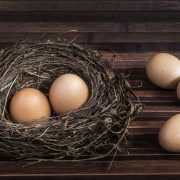Change for good or change for the sake of change?
With the significant swing against the Coalition at the October by-election in the Sydney seat of Wentworth, we turn our attention to next year’s Federal Election, expected to be held in May 2019.
If present trends are an indication of the future, we will see a change of government with the Australian Labor Party (ALP) taking the reins of power in Canberra.
So, what will a change of government mean for our super?
Hardly a month goes by without someone proposing that we change some aspect of the superannuation system. It is no wonder that the average super fund member is so disengaged with their super.
In July 2017, we saw the most significant changes to superannuation in the previous 10 years. Some changes were good, and others not so good, depending on your perspective.
Some of the initiatives the ALP has previously expressed opposition to may provide hints to changes that might be made. These include:
- Reducing the annual limit (cap) for non-concessional contributions from $100,000 to $75,000 per annum.
- Reducing the income threshold, at which the additional 15% tax becomes payable on concessional contributions from $250,000 to $200,000. Interestingly, the ALP originally proposed reducing the threshold from $300,000 to $250,000, but when the Coalition government reduced it to $250,000, the Opposition responded by announcing a reduction to $200,000.
- Opposition to the ability of people, with less than $500,000, in super to carry forward the unused portion of their concessional contribution cap.
- The ability for people to claim a tax deduction for their personal superannuation contributions.
On the positive side, the ALP recently announced plans to give women a better chance to achieve equality in superannuation by requiring superannuation guarantee contributions (currently 9.5% of salary) to continue to be paid while on government paid maternity leave. This would also be extended to men, who take paid paternity leave following the birth of a child.
Currently, employers are not required to make superannuation guarantee contributions for employees earning less than $450 per month. However, the ALP proposes to remove the minimum income threshold before superannuation guarantee contributions become payable. Unfortunately, this may lead to very small amounts being contributed to super only to be swallowed up in fees and charges by super funds and otherwise being lost to the members.
The Opposition has also made some other significant tax-related announcements, including the controversial plan to eliminate the cash refunds of excess franking credits and making changes to negative gearing for existing properties. By all accounts, negative gearing will still be available for newly-built residential properties, but not for established properties.
Without a doubt, as the next election approaches, we are going to see much posturing by political parties of all persuasions, as they jockey for control over Australia’s $2.7 trillion superannuation nest-egg.
Source: Peter Kelly | Centrepoint Alliance









